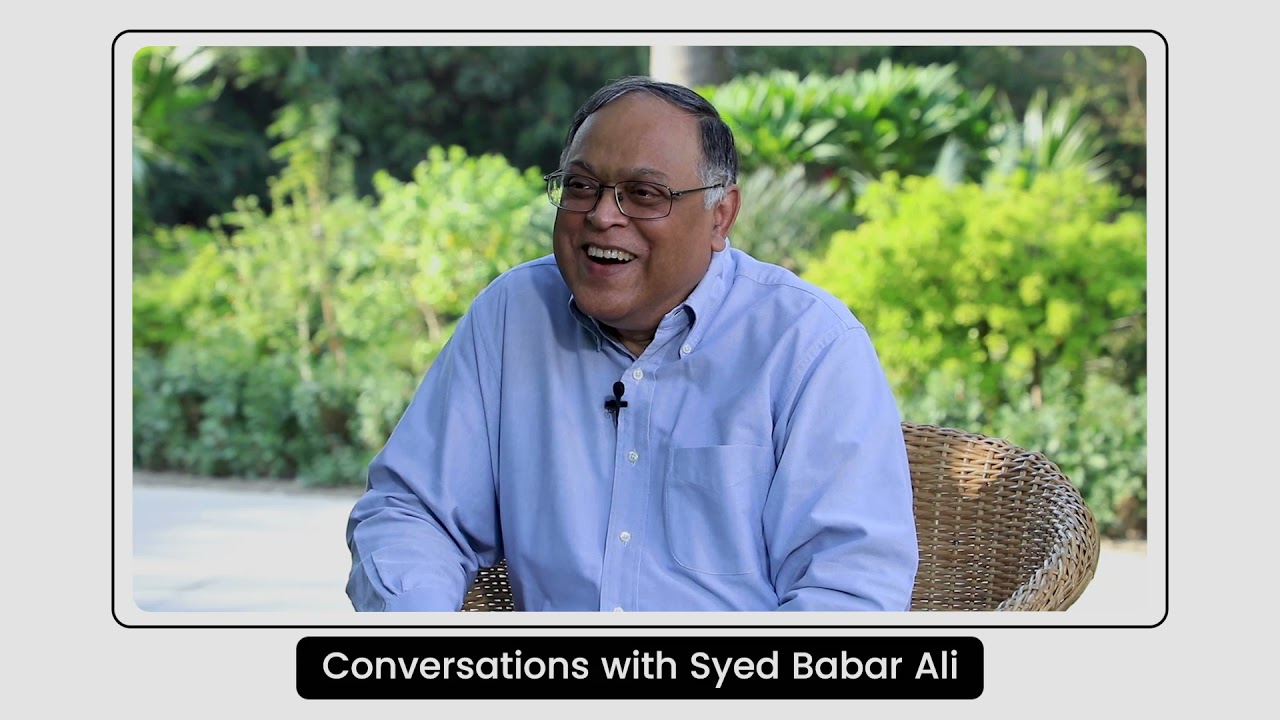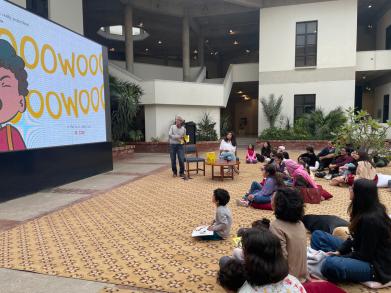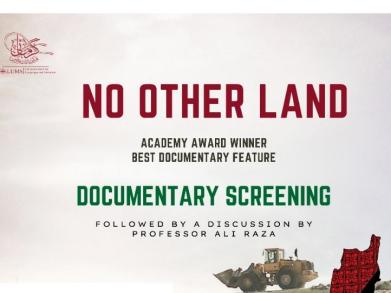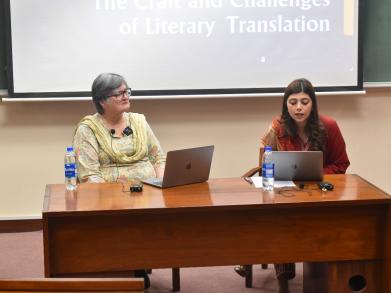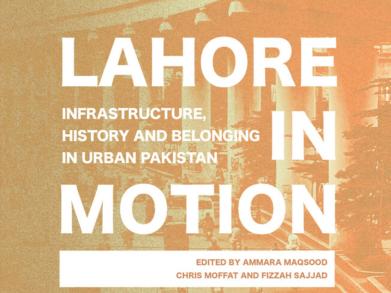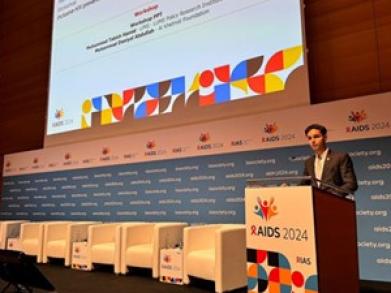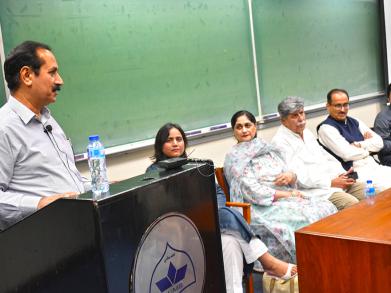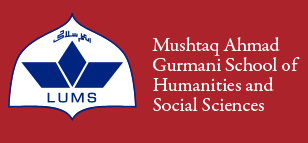
to
The Gurmani Centre recently hosted a book launch and photo exhibition for Mawakhat, a powerful collection of stories that chronicles resilience and resistance in the aftermath of the devastating 2022 floods. These floods displaced nearly 33 million people across Pakistan, leaving behind a trail of destruction. The book serves as a testament to the strength of the human spirit and the enduring principle of solidarity, presenting over 100 compelling stories and portraits. It captures lives transformed by Akhuwat’s flood relief and rehabilitation efforts, which successfully rebuilt over 6,000 homes across Sindh, Balochistan, Khyber Pakhtunkhwa, and Punjab.
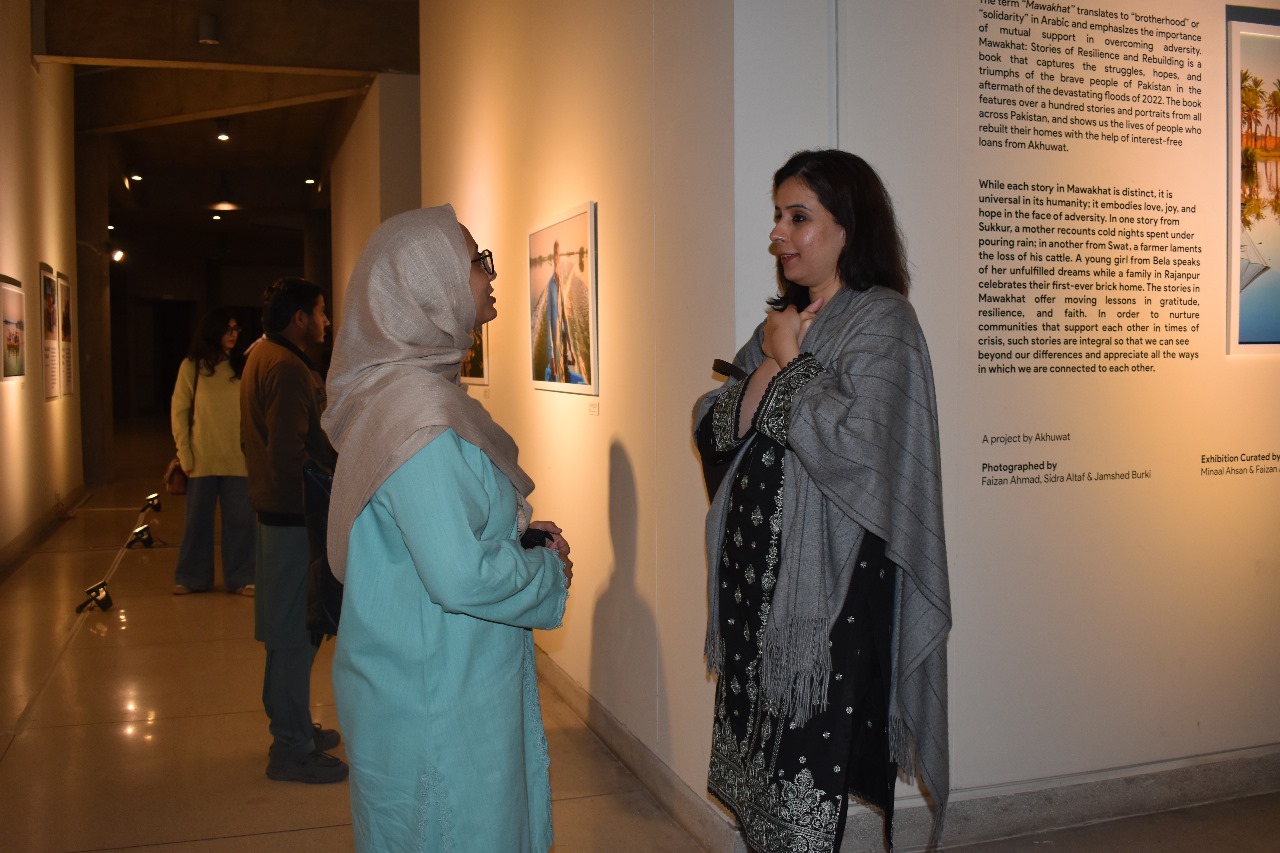
The session featured Dr. Amjad Saqib, Ahmad Rafay Alam, and Faizan Ahmad as speakers. Ahmad Rafay Alam, a renowned environmental lawyer and activist, opened the discussion by highlighting the human-driven nature of climate change and its role in crises like the 2022 floods. He identified overconsumption as the root cause, driven by the capitalistic economic systems of the Global North, which commodify nature and reduce it to utilitarian values. Alam emphasized that the catastrophic floods were more than just a statistical tragedy of loss and damage—they were a complete disruption of life systems. He noted that the destruction of roads and transportation routes paralyzed trade and mobility, while the collapse of schools left communities with no foundation to rebuild their lives. Alam argued that recovery requires more than reconstruction; it demands a reimagining of life itself.
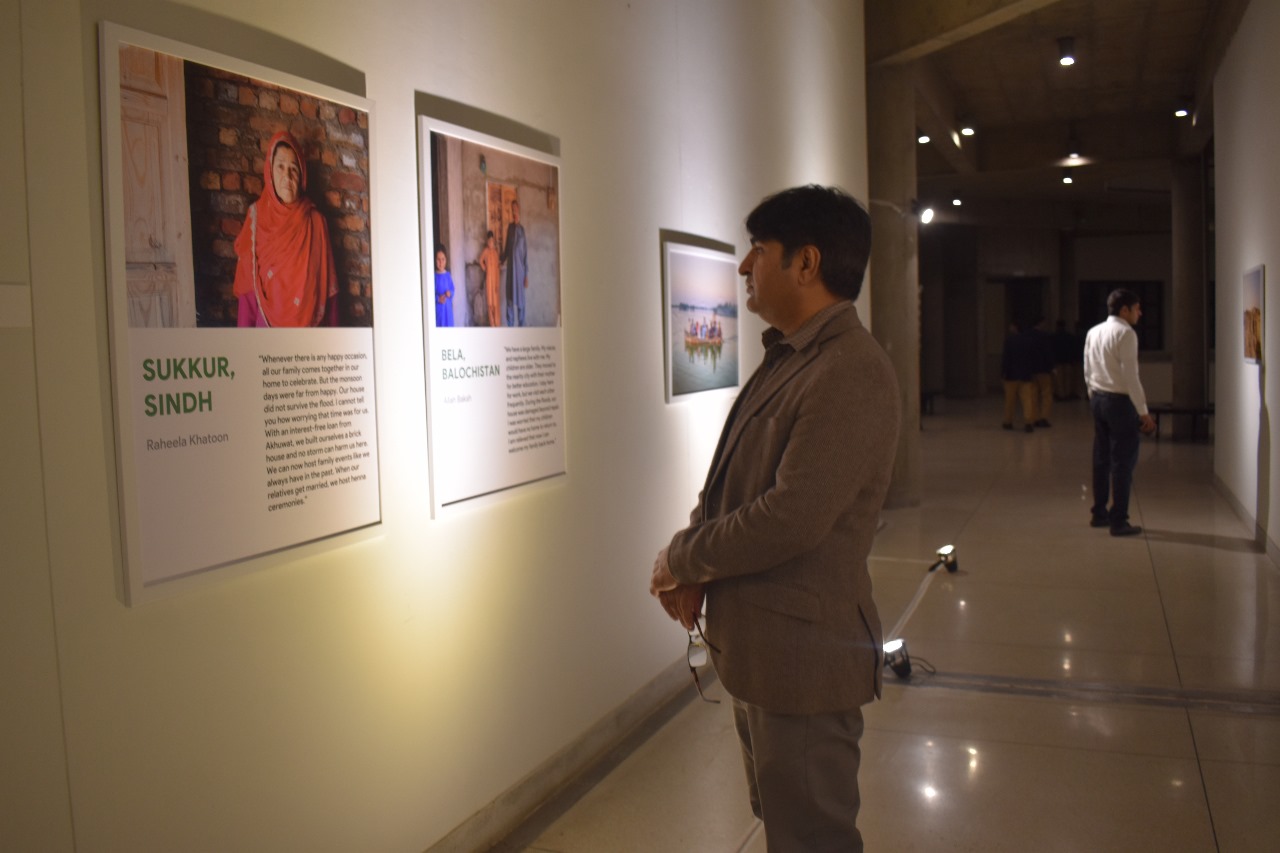
Dr. Amjad Saqib, founder and chairman of the Akhuwat Foundation, shared his insights during the session. He elaborated on Akhuwat’s groundbreaking role as the world’s largest interest-free microfinance program and how it empowered flood-affected communities by providing interest-free loans to rebuild their homes, achieving full recovery in the process. Reflecting on his entrepreneurial philosophy, Dr. Saqib emphasized the importance of value addition not only to one’s own life but also to the lives of others. This, he explained, fosters self-awareness (khud shanasi) and a deeper connection to God (khuda shanasi). Dr. Saqib described Mawakhat—the spirit of mutual support and solidarity—as a way of life that bridges the gap between the privileged and the underprivileged. He presented it as a vital alternative to the destructive and exploitative systems of wealth that dominate the world today.
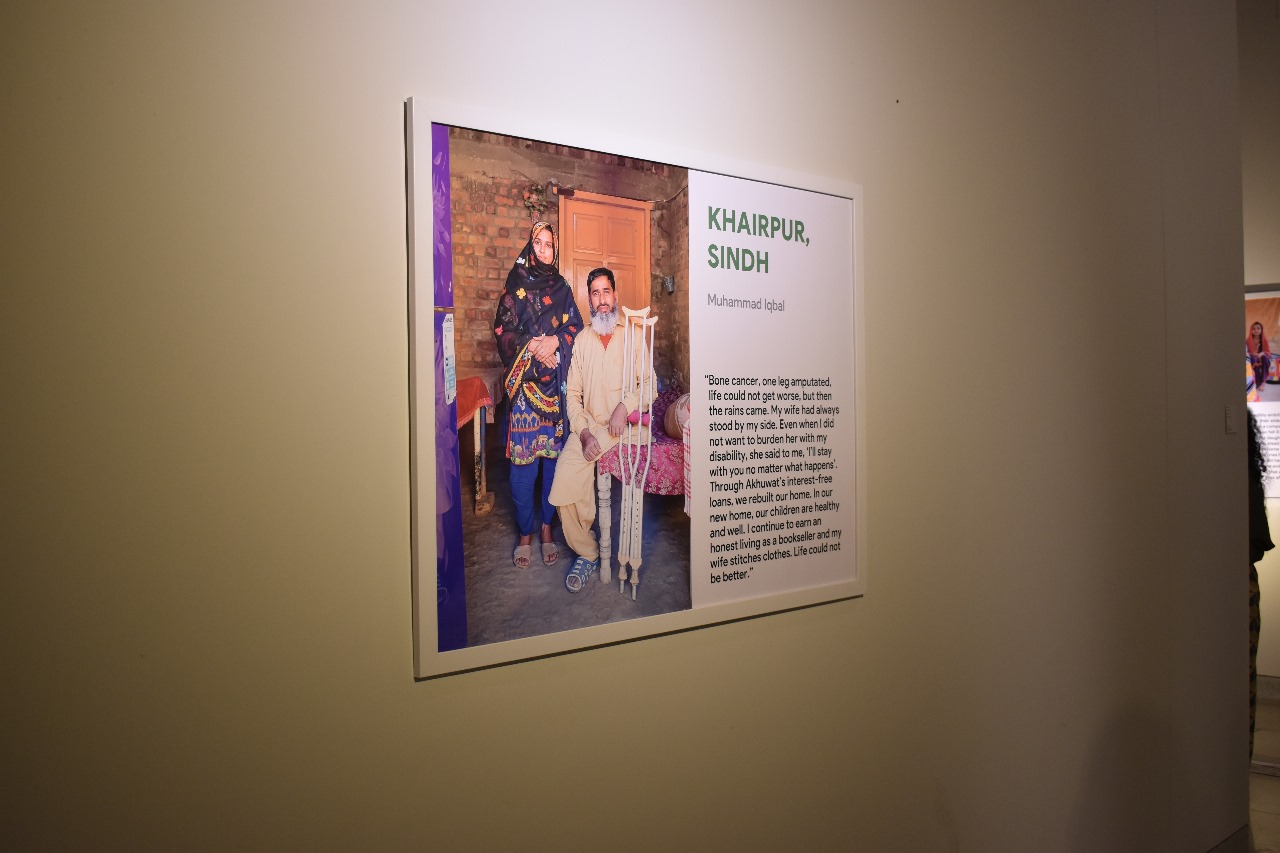
Faizan Ahmad, the editor of Mawakhat, recounted his journey of documenting the stories and capturing photographs in the flood-affected areas. Driven by passion and a commitment to authentically represent the people of Pakistan, Faizan described the challenges he faced during this process. His photographs, rich with nuanced cultural details, were taken with a conscious effort to respect sensitivities and uphold the dignity of the individuals portrayed. Through his work, he sought to capture and preserve the resilience, dignity, and spirit of those whose lives were profoundly impacted by the floods.
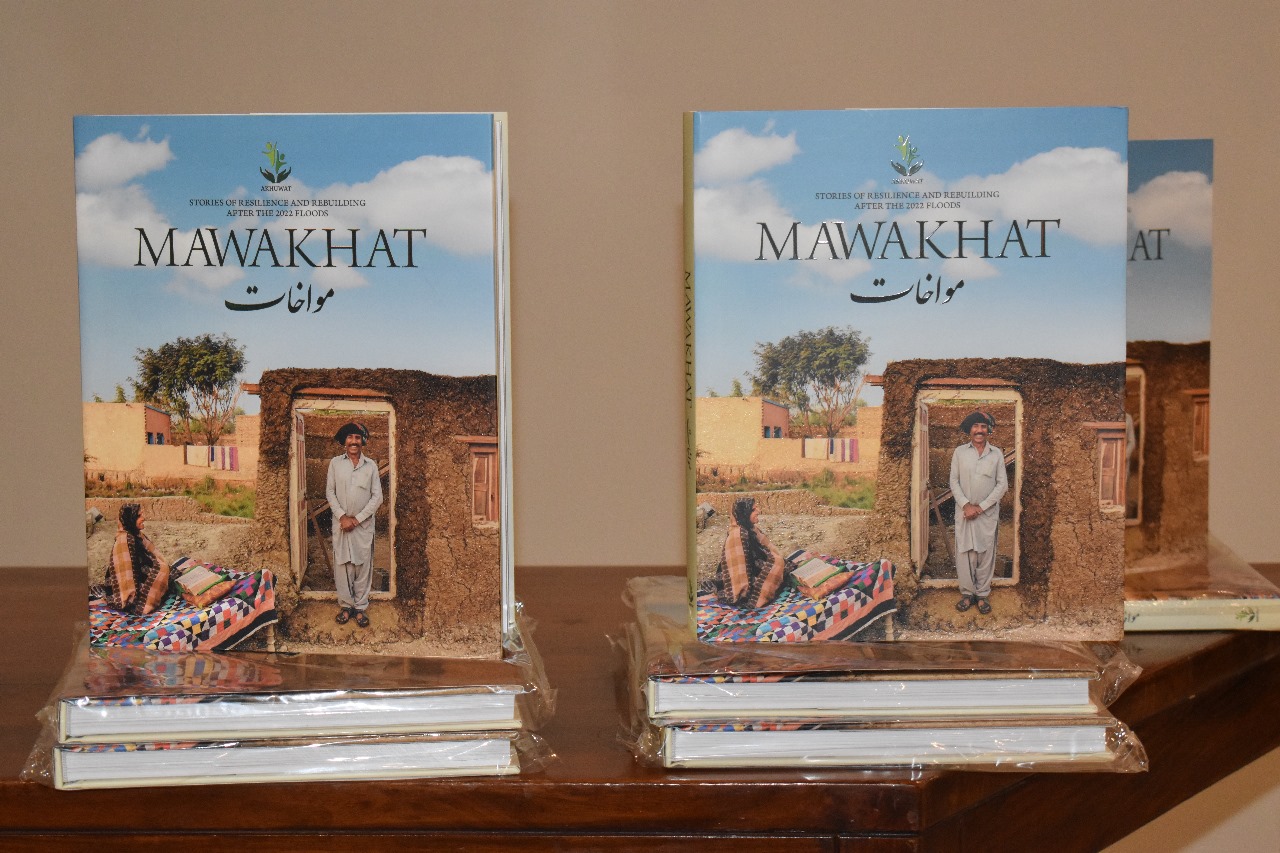
In his closing remarks, Rafay Alam, the moderator of the session, emphasized the stark disparity in accountability for environmental degradation. He highlighted how the privileged classes, who produce pollution on a massive scale, often shift blame onto vulnerable communities—those least responsible yet most affected by climate change. Alam called attention to the bitter irony of this narrative, where the true beneficiaries of exploitative economic systems escape responsibility, leaving marginalized communities to bear the brunt of the crisis.

